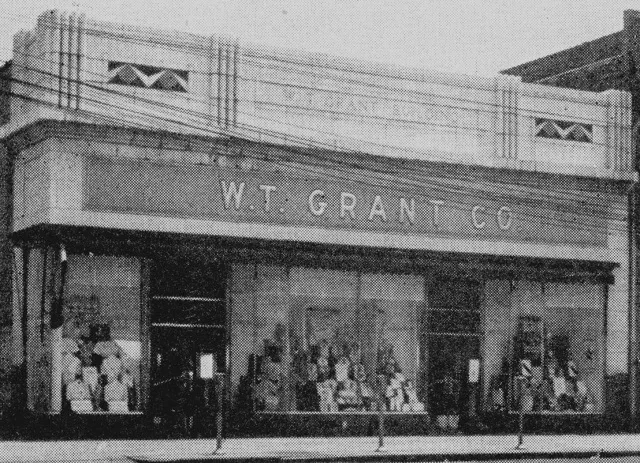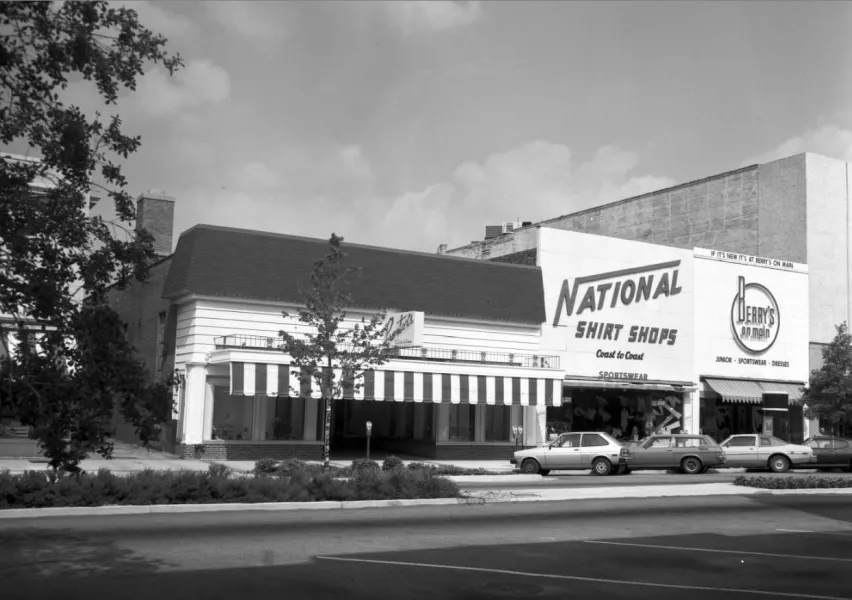1614-1616 Main Street
W.T. Grant Building
Using a business model based on low prices and modest profit, the Lynn, Massachusetts-based W.T. Grant company grew rapidly from its founding in 1906, expanding from 77 stores in 1925 to 350 stores by 1930. By building a modern, Junior Department Store in Columbia during the Great Depression, the company enjoyed a competitive edge over many Main Street stores then considered outdated. While other businesses suffered, Grant stores were making almost $100 million a year.
Architecturally, this building embodies the Art Deco style that was a common sight on most main streets across the country by the 1930s. The style’s combination of traditional architectural forms and massing with new styles of ornamentation seemed new and different, yet comfortable to customers. Veneers, cast stone, tile, and terra cotta implied permanence and stability without the costs associated with traditional stone construction. This cost-cutting architectural formula, the contrast of bright, metallic colors with cool, natural colors, and eye-catching geometric and zigzag patterns made Art Deco popular with chain stores and independent merchants alike.
A flurry of advertising about the new W.T. Grant store appeared in Columbia newspapers on January 8, 1932, the day before the store’s official opening. In a short, promotional article, the company emphasized its low prices and that it hired saleswomen locally – a wise marketing strategy in a down economy. Instead of promoting the new store’s architecture, the writer focused on its attractive interior design. The cream-colored walls, bright lighting, dark walnut fixtures, and plate glass counters created a pleasant shopping environment for housewives looking for a deal and small luxuries.
By the time Columbia’s W.T. Grant store closed in 1959, the downtown business district had begun to decline. Many shoppers no longer viewed Main Street as convenient or even safe due to tensions from lunch counter sit-ins. Considering these concerns, and in a pattern consistent with their actions across the country, the chain deserted its main street roots for far-flung suburban shopping centers. W.T. Grant stores built during this later period tend to be flashier and made of cheaper materials. After the company declared bankruptcy in 1975, former W.T. Grant Junior Department Stores have become rare.
The structure underwent a comprehensive rehabilitation in 2013 to become part of Agape Senior, a health care provider, that today is called LTC Health Solutions.

